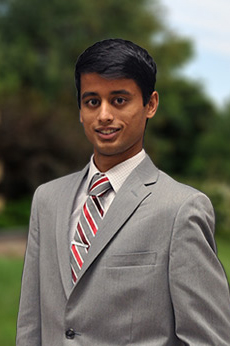Interdisciplinary Studies
“Ethnographic Study of Cardiovascular Disease Attitudes among Adolescents in India”

Established as the leading cause of death worldwide, cardiovascular disease is a complex, multi-causal issue. Understanding the sociocultural construction of this non-communicable disease would advance our knowledge of how to improve care to vulnerable populations. Focused on a specific district in India, the purpose this study is to identify cultural beliefs and attitudes towards cardiovascular health among middle school students. A culturally sensitive and specific board game will be engineered to facilitate a conversation among the adolescents; this interaction will be primarily documented through ethnographic methods and surveys. This project is testing a methodological innovation, the board game, which may contribute to tools utilized to gather ethnographic data. Furthermore, understanding cultural beliefs and practices will allow healthcare professionals to advance through checks and balances when making sense of cardiovascular disease morbidity.
Who is your mentor for your research project? How did you arrange to work with this person?
Dr. Sarah Chard, Department of Sociology and Anthropology
During freshman year, I was recommended to contact Dr. Chard after speaking with Ms. Birger from the HAPP program. Dr. Chard has been by mentor for research in medical anthropology since.
How did you know this was the project you wanted to do?
This project was an organic transformation of my extracurricular project in educational health games. Enthusiastic support from Dr. Chard and the INDS program confirmed my decision to proceed with this project.
Is this your first independent research project?
I previously completed an independent research study with Dr. Chard during my sophomore year.
Do you get course credit for this work?
I did not receive course credit for this specific project, however I am taking INDS Capstone courses to cultivate this project.
How much time do you put into it?
This project started in Spring 2016, but I do not keep track of the hours. I do not dedicate a set number of hours to my research project. I gradually let it evolve through my conversations and literature review, so it is hard to quantify that.
How did you hear about the Undergraduate Research Award (URA) program?
I heard about the URA program through myUMBC posts.
What academic background did you have before you applied for the URA?
I did anthropological research, for an independent study credit, with Dr. Chard during sophomore year. The associated literature review was invaluable to introducing me to the field of medical anthropology.
Was the application difficult to do?
The application was not particularly difficult, since I included similar information in my INDS Capstone project proposal.
How much did your mentor help you with the application?
Dr. Chard was instrumental for my application process. Though she allowed me the freedom to write the proposal, Dr. Chard’s feedback was extremely valuable and appreciated.
What has been the hardest part about your research?
Research can be very slow. There are many moving parts, and the project will not always proceed as expected. However, as I let my ideas “sit”, I returned with fresh perspective, which became pivotal moments/changes in my project.
What was the most unexpected thing?
The overwhelming support that I received from my mentors was unexpected, in that I did not expect a board game to be seriously included in my Senior Capstone project! I would like to especially thank Prof. Wrigley, Prof. McAlpine, and Dr. Freeland for their support and contributions to my INDS degree and Capstone project.
How does your research relate to your work in other classes?
The research has natural connections with my anthropology coursework (ANTH 211 and ANTH 312).
What else are you involved in on campus?
I am involved with the INDS 330H role-playing game, the Spark initiative (with my colleagues Ella Hawkins and Stanley Wang), INDS CoM, and a student representative for the INDS program.
What is your advice to other students about getting involved in research?
Pursue your research passions, expand your connections/network, and cultivate life-long friendships with colleagues in your field.
What are your career goals?
While tangentially exploring and integrating my interests in medical anthropology and social entrepreneurship, my goal is to become a physician.
9/12/2016